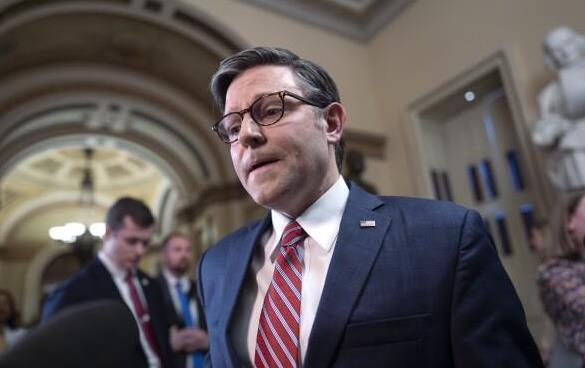House Speaker Mike Johnson issued a stark warning on Sunday that has sent shockwaves through Washington and reignited partisan tensions nationwide. According to Johnson, if Democrats regain control of the House of Representatives in the 2026 midterm elections, one of their first actions could be to impeach President Donald Trump—possibly within the very first week of the new Congress.

Johnson’s comments came during a televised interview in which he emphasized what he called the “existential stakes” of the upcoming election. “Make no mistake,” he said, “if the Democrats take back the House, their number one priority will be to launch an immediate impeachment of President Trump. They won’t wait. They’ll do it in the first week.” His remarks have since dominated headlines, political talk shows, and social media platforms, with both supporters and critics weighing in on the explosive claim.

President Trump, who returned to office after a dramatic and unprecedented political comeback, has already faced two impeachments during his previous term. Both efforts, led by Democratic majorities in the House, were highly divisive and ultimately failed to remove him from office. The suggestion that a third impeachment could be on the horizon—this time in the early days of a new term—has left many Americans questioning the stability of the political system and whether bipartisan governance is even possible in today’s climate.
Democrats have not officially confirmed any such plans. However, several prominent members of the party have openly criticized Trump’s return to the presidency and have expressed deep concern over what they view as ongoing threats to democratic norms, the rule of law, and national unity. Some have hinted that investigations into Trump’s actions both during and after his first term could form the basis for renewed legal and congressional scrutiny.
Johnson’s warning appears to be a strategic political move as much as it is a cautionary message. By framing the 2026 midterms as a direct referendum on Trump’s presidency, he is aiming to galvanize conservative voters and unify Republicans around a common threat. “This is not just about control of the House,” he said. “It’s about protecting the presidency, defending our Constitution, and stopping the Democrats from plunging the country into another round of chaos and division.”
Predictably, reactions to Johnson’s statement have been split along party lines. Republican lawmakers have echoed his concerns, with some accusing Democrats of plotting a “vengeance agenda” and undermining the will of the voters. Senator Josh Hawley commented, “This just proves the left will never accept the results of a free election if it doesn’t go their way.” Others have suggested that Democrats are weaponizing impeachment as a political tool, rather than a constitutional mechanism reserved for serious offenses.
Democrats, meanwhile, have pushed back strongly against Johnson’s remarks. Representative Alexandria Ocasio-Cortez called the statement “pure fearmongering,” saying that “no one is talking about impeachment right now except Republicans trying to rile up their base.” House Minority Leader Hakeem Jeffries issued a more measured response, stating, “The Speaker would do better to focus on passing legislation and governing responsibly rather than speculating about hypotheticals.”
Political analysts see Johnson’s warning as part of a larger Republican messaging strategy heading into a pivotal election cycle. With control of both chambers of Congress hanging in the balance, both parties are deploying increasingly aggressive rhetoric to energize supporters. The specter of another Trump impeachment could serve as a rallying cry for conservatives, even if the actual likelihood remains uncertain.
Yet the mere suggestion has already added fuel to a political environment that remains deeply polarized. For voters, it raises uncomfortable questions: Is impeachment now a regular political weapon? Can any president govern effectively under constant threat of removal? And is there any end in sight to America’s spiraling partisan warfare?
As the 2026 elections draw closer, these questions are likely to become more urgent. Whether Johnson’s prediction will come to pass remains to be seen, but one thing is clear: the battle for the House is about much more than seats—it’s about the future direction of the nation and the survival of democratic norms in an era of unprecedented political volatility.






